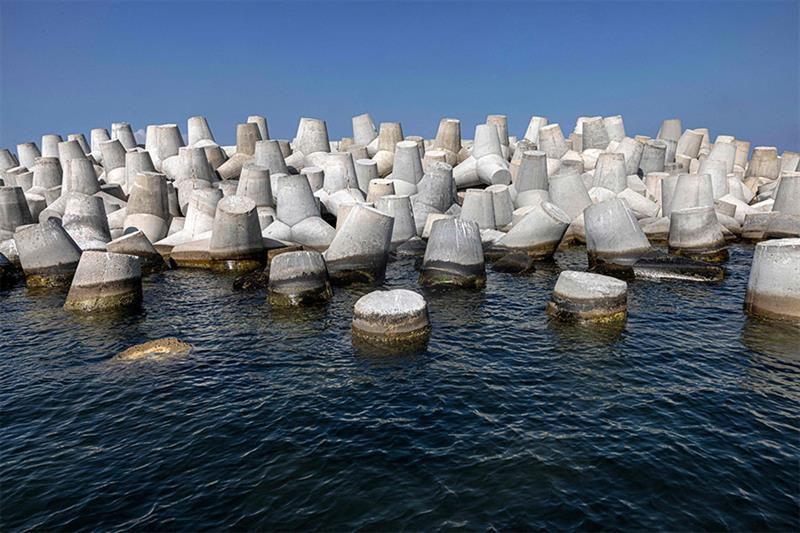The development of this strategy comes in the face of increasing pressure from climate change on all aspects of life, especially the water sector, Sewilam added.
Achieving blue economy standards will reflect positively on future generations by helping achieve food security, eliminating poverty, raising the standard of living, increasing income and providing job opportunities, Sewilam asserted.
What is the blue economy?
According to the World Bank, the blue economy is the “sustainable use of ocean resources for economic growth, improved livelihoods, and jobs while preserving the health of the ocean ecosystem.”
The European Commission defines it as “all economic activities related to oceans, seas and coasts.”
The Commonwealth of Nations considers it “an emerging concept which encourages better stewardship of our ocean or ‘blue’ resources.”
The term was first coined at the UN Conference on Sustainable Development held in Rio de Janeiro, Brazil in 2012. At this time, it was defined as an “ocean economy that aims to improve human well-being and social equity, while significantly reducing environmental risks and ecological scarcities.”
The goals of the blue economy align with the 14th Sustainable Development Goal (SDG) which stipulates the conservation and sustainable use of oceans, seas and marine resources.
The blue economy encompasses a number of social and economic principles that contribute to preserving marine ecosystems, relying on renewable and clean energy and attaining SDGs, Sewilam affirmed.
How will Egypt’s national strategy be formulated?
The country’s national strategy will be prepared by a committee to be headed by the Suez Canal Authority with members from the Ministry of Environment, Ministry and Transport and the Egyptian Public Authority for Shore Protection.
The strategy will focus on nature-based solutions and ecosystem services for biodiversity in the Red Sea, North Coast and several other regions.
The committee will formulate a work plan to study all relevant sectors to the blue economy as part of Egypt’s plan to develop many areas most importantly the Mediterranean’s coastal areas as well its economic zone.
The strategy will build on previous work to achieve blue economy objectives, Sewilam affirmed on Sunday during a meeting with Minister of Environment Yasmine Fouad.
These include a 2017 climate change adaptation project on the country’s North Coast implemented by the irrigation ministry and the United Nations Development Programme.
The project aimed to protect densely populated low-lying lands in the Nile Delta, that are highly vulnerable to climate change-induced sea-level rise. It covered a total length of about 69 km spanning five coastal governorates: Port Said, Damietta, Dakahlia, Kafr El-Sheikh and Beheira.
From her side, Fouad said that the environment ministry, in cooperation with the irrigation ministry, has also worked to achieve blue economy objectives by stopping industrial drainage into the Nile River. The environment ministry also stopped the dumping of unclean materials from sugar and paper factories in Qena, Aswan and Delta governorates, she continued.
Egypt also previously launched a National Climate Change Strategy 2050 following the 26th UN Climate Change Conference (COP26) to bolster the conservation of natural resources and ecosystems, support the SDGs and manage climate change impacts.
Strategic Partnerships
Egypt partnered with the World Bank earlier this month for a one-year period (FY2025/26) to prepare a cohesive strategy to raise awareness and build capacity for developing the blue economy.
The partnership will also include the division of roles and responsibilities among relevant actors.
Furthermore, Egypt launched its second phase of the EU-funded SwitchMed Egypt Project aimed at implementing Sustainable Consumption and Production (SCP) and promoting a circular and blue economy.
The second phase involves supporting the development of a national blue economy action plan as well as supporting two national roundtables on sustainable consumption and production among other goals
The project is executed by the Centre for Environment and Development for the Arab Region and Europe (CEDARE) and Egypt’s Ministry of Environment in collaboration with United Nations Environment Programme.
Source : AhramOnline


